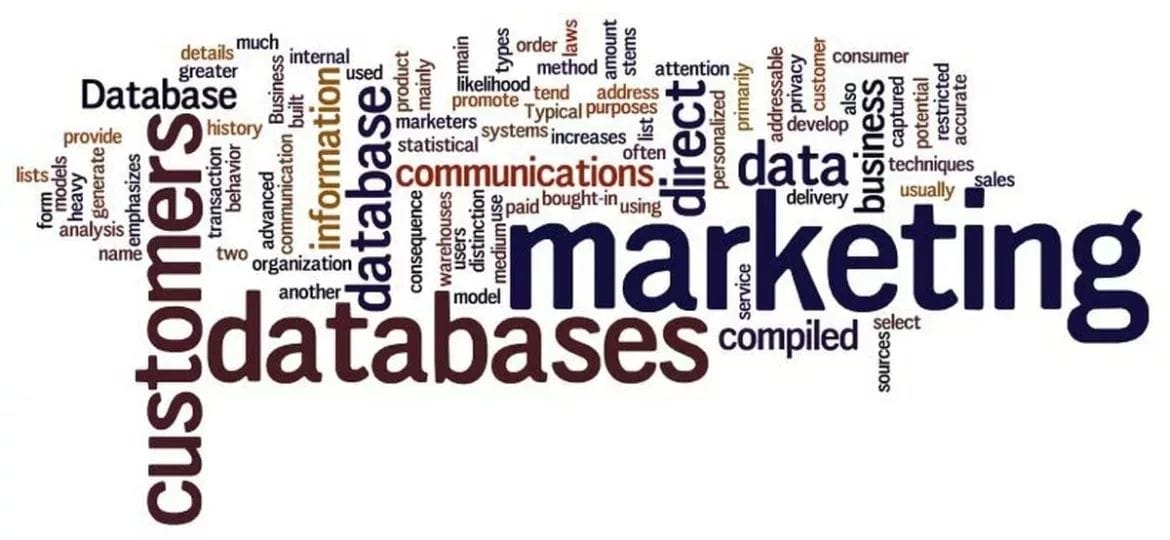
Is Database Marketing the Key to Modern Marketing Success?
- Database marketing leverages customer data for precise targeting and personalization, increasing campaign effectiveness.
- Enhanced customer retention, loyalty, and feedback through continuous data analysis and proactive adjustments.
- Cost-efficient marketing and improved ROI by focusing efforts on receptive audiences.
- Real-time adjustments, A/B testing, and multi-channel integration offer adaptability and consistent customer communication.
- Behavioral, demographic, and geographic segmentation tailors marketing efforts to diverse customer groups.
- Database marketing’s growing importance requires businesses to navigate data privacy, consent, and quality issues.
Database marketing utilizes customer data for precision and personalization, elevating campaign performance. It fosters loyalty, gathers feedback, and promotes retention through data-driven adaptations. Cost-efficiency is achieved by targeting receptive audiences, driving higher ROI. Real-time adjustments, A/B testing, and multi-channel integration ensure agile, consistent customer communication. Segmentation based on behavior, demographics, and geography refines marketing efforts. Adapting to data privacy, consent, and quality challenges is crucial in recognizing database marketing’s significance
Database marketing, a subset of direct marketing, has become an indispensable tool for businesses in the digital age. It involves the collection, analysis, and utilization of customer data to create targeted and personalized marketing campaigns. In this article, we will explore the numerous benefits of database marketing and why it has become a crucial aspect of modern marketing strategies.
Understanding Database Marketing
What is Database Marketing?
Database marketing, often referred to as customer relationship management (CRM), is a strategy that uses customer data to enhance and optimize marketing efforts. It involves the collection and analysis of information related to customer preferences, behavior, and demographics. This data is then used to tailor marketing campaigns to specific segments of the audience.
The Evolution of Database Marketing
The concept of database marketing has evolved over the years. Initially, it relied on manual data entry and was primarily used for direct mail campaigns. However, with the advent of digital technology, it has grown to encompass a wide range of marketing channels, including email, social media, and web personalization.
Benefits of Database Marketing
Improved Targeting and Personalization
One of the primary benefits of database marketing is the ability to target specific customer segments with high precision. By analyzing customer data, businesses can identify the most receptive audience for their products or services. This targeted approach increases the likelihood of a positive response and improves ROI.
Personalization
Personalization is key to engaging modern consumers. Database marketing enables businesses to create highly personalized marketing messages and offers, catering to individual preferences and needs. Personalized campaigns are more likely to resonate with customers, leading to higher conversion rates.
Enhanced Customer Retention
Database marketing plays a vital role in building and maintaining customer loyalty. By continuously tracking and analyzing customer data, businesses can identify and address the needs and preferences of their existing customers. This proactive approach fosters loyalty and encourages repeat business.
Customer Feedback and Surveys
Through database marketing, businesses can gather valuable feedback from customers and conduct surveys to understand their satisfaction levels and areas for improvement. This information helps in making necessary adjustments to enhance the customer experience and retain valuable clientele.
Increased Revenue and ROI
Database marketing is a valuable tool for identifying opportunities to upsell or cross-sell to existing customers. By analyzing past purchase behavior, businesses can offer complementary products or upgrades, increasing the average transaction value.
Cost-Efficiency
Targeted marketing reduces wastage by ensuring that marketing efforts are focused on individuals who are more likely to convert. This increased efficiency leads to reduced marketing costs and a higher return on investment (ROI).
Improved Campaign Effectiveness
A/B Testing
Database marketing allows businesses to conduct A/B testing to determine which marketing messages, creative elements, or offers perform best. This data-driven approach ensures that marketing campaigns are optimized for maximum effectiveness.
Real-time Adjustments
Unlike traditional marketing, which may require a significant lead time, database marketing allows for real-time adjustments. Businesses can adapt their strategies quickly based on customer responses, ensuring that campaigns remain relevant and effective.
Enhanced Customer Segmentation
Behavioral Segmentation
Database marketing allows for in-depth behavioral segmentation. Businesses can group customers based on their online behavior, such as website visits, click-through rates, and purchase history. This information enables the creation of highly targeted campaigns.
Demographic and Geographic Segmentation
In addition to behavioral data, businesses can use demographic and geographic data to segment their customer base. This approach ensures that marketing efforts are tailored to the unique characteristics of different customer groups.
Better Customer Communication
Multi-Channel Integration
Modern consumers engage with brands through multiple channels, such as email, social media, and in-store visits. Database marketing enables businesses to integrate their communication efforts across these channels, creating a consistent and cohesive brand experience.
Automated Marketing
Marketing automation tools, integrated with database marketing, streamline the process of communicating with customers. Businesses can set up automated email campaigns, trigger messages based on customer actions, and maintain ongoing communication without manual intervention.
Conclusion
In a world where customer data is increasingly valuable, database marketing has emerged as a critical strategy for businesses of all sizes. The benefits of improved targeting, personalization, customer retention, increased revenue, and campaign effectiveness cannot be ignored. However, it is essential for businesses to navigate the challenges and considerations of data privacy, data quality, customer consent, and data analytics.
As technology continues to advance, the power of database marketing will only grow. To remain competitive, businesses must adapt to this evolving landscape and harness the potential of their customer data. With the right strategy and a commitment to respecting customer preferences and data privacy, database marketing can be a game-changer in the world of modern marketing.

